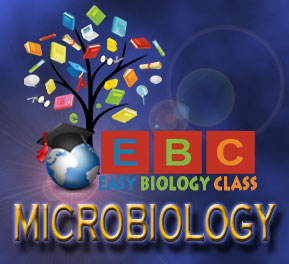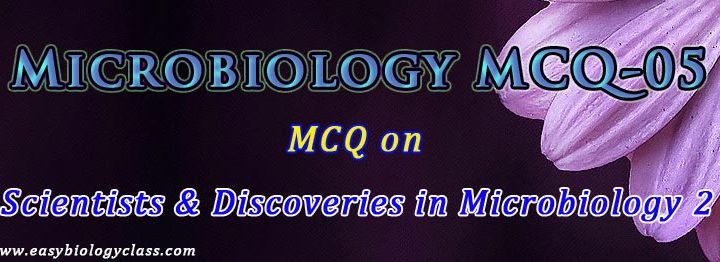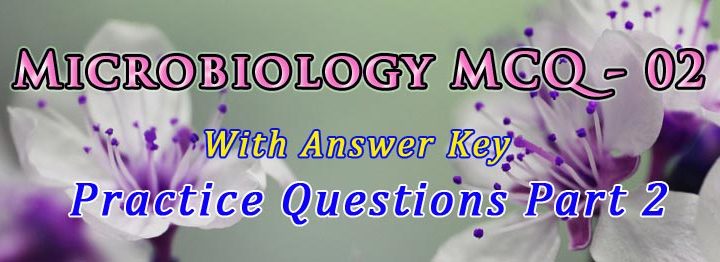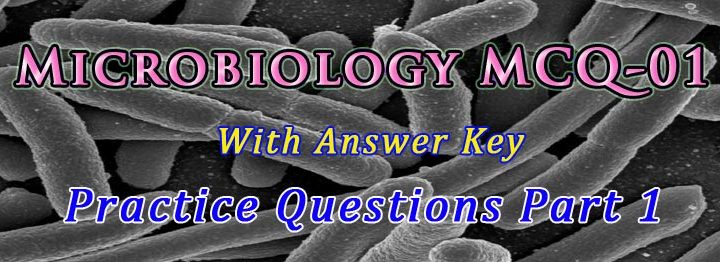MICROBIOLOGY MCQ-05 (Biology / Life Sciences MCQ: Multiple Choice Questions in Microbiology) MCQ on Scientists & Discoveries in Microbiology Part 2 (Sample/Model/Practice Questions for NEET, AIPMT, M.Sc. and Medical Entrance Examination) 1. Who discovered Mycobacterium tuberculosis? a. Koch b. Jenner c. Pasteur d. Virchow 2. Mycobacterium lepree was discovered by: […]
Continue ReadingTag Archives: Quizzes on Microbiology
MCQ on History of Microbiology
(1). Who discovered Mycobacterium tuberculosis? a. Koch b. Jenner c. Pasteur d. Virchow (2). Mycobacterium lepree was discovered by: a. Pasteur b. Jenner c. Koch d. Hansen (3). Antibodies were discovered by: a. Edelman b. Porter c. Edelman and Porter d. Edelman and Hess (4). Streptococcus pneumonia was discovered by: […]
Continue ReadingMicrobiology Scientists and their Contributions (MCQ-4)
MCQ on Scientists and Discoveries in Microbiology Part 1 (1). Scientist who demonstrated that open tubes of broth remained free of microbes when air was free of dust: a. Tyndal b. Pasteur c. Petri d. Francesco Redi (2). Who discovered bacterial transformation? a. Jenner b. Griffith c. […]
Continue ReadingNEET PG Microbiology Practice Questions
Microbiology MCQ – 02 1. Glucans, Mannans and Chitin are found to be present in the cell wall of ______ a. Plants b. Eubacteria c. Fungi d. Actinomycetes 2. _____ is a synthetic Antimicrobial drug against Mycobacterium tuberculosis. a. Penicillin b. Tetracycline c. Erythromycin d. Isoniazid 3. Who isolated Streptococcus […]
Continue ReadingIntroduction to Microbiology MCQ
Microbiology MCQ-01 1. The process in which all living cells, spores and viruses are completely destroyed from an object is called _____. a. Disinfection b. Pasteurization c. Sterilization d. Antisepsis 2. UHT sterilization involves high temperature exposure of objects for _____. a. 1 – 3 seconds b. 1 – 3 […]
Continue Reading



